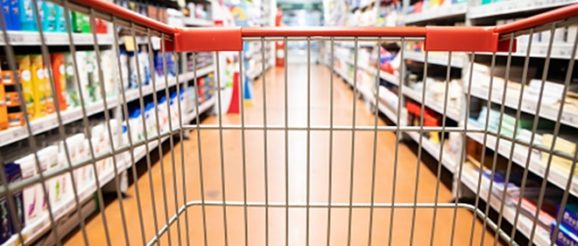What FMCG players need to do to thrive once coronavirus ends; innovation, adaptability key to survive – The Financial Express

 Great innovations are likely to arise when companies recognize changes in our ecosystems, and respond to create value, both for the business and the consumer.
Great innovations are likely to arise when companies recognize changes in our ecosystems, and respond to create value, both for the business and the consumer.By Anjani Kumar
The COVID-19 pandemic is a humanitarian challenge that has pushed the boundaries of economies and businesses. As human beings, we have an innate drive to survive and have done so through adaptation and change. The consumer goods industry is no different. Anecdotally we know that in prehistoric times farmers were struggling to feed their families, and that led to the global spread of domesticated grain crops and laid the foundation of innovation in cultivation. Today, great innovations are likely to arise when companies recognize changes in our ecosystems, and respond to create value, both for the business
and the consumer.
COVID-19 has disrupted life, as we knew it. This has fueled innovations across industries and consumer goods is no different. FMCG companies across the board are seen rapidly re-evaluating business models and innovating across the value chain to remain relevant and serve consumers.
Manufacturing has been hit hard by scaled down operations and labor shortages. To stay productive in this scenario, FMCG players have been seen looking at their current capabilities and available resources to reimagine product offerings and make them relevant to consumers’ lifestyle under lockdown. For example, nearly all beverage alcohol companies are producing hand sanitizer, which they donate to hospitals (or sell), thereby productively using existing stocks of their primary ingredient – ethanol. Another FMCG company has capitalized on the heightened awareness on sanitization and zero-contact requirements with a new category of surface disinfectant sprays. In order to ease the strain on sourcing
new packaging, companies have been allowed to make use of their excess packaging inventory with pre-printed manufacturing dates. It is clear that the industry is thinking perceptively about using existing capacity and raw materials differently, and this can help companies even out cash flows and drive a positive societal impact.
Traditional distribution and channel systems are stressed due to loss of sale and non-availability of stocks. A large FMCG player now only ships bundles of pre-fixed quantities. This takes away the flexibility for customized orders, but minimizes effort in loading and off-loading goods – a big challenge given labor shortages and social distancing norms. Multiple FMCG players are integrating end-to-end supply chains to retain control over their products by sending their own trucks to pick up goods from distribution centres. While this may be possible in certain parts of the country, there are other FMCG players who are struggling to have their own trucks to ship these goods on account of lack of the labour and driver force and are asking the super distributors or retailers to arrange transportation.
A popular e-commerce grocery store has formed a new partnership with a ride-sharing service, for delivery of their goods, which allows both of them to continue business through collaboration of their individual strengths. As partnership and strong tech support emerge as key options to ride the wave through, a large retailer and text-messaging company have collaborated to trial a text-based order system, offering customer a timely delivery of the goods at a designated pick-up point. B2B agri-tech companies providing fresh produce are using their kirana networks to push their product through the last mile, allowing direct doorstep delivery. Social distancing norms are likely to stay even after the lockdown period is over. Companies that are able to develop thoughtful platforms and exclusive partnerships are likely to be better placed to continue to serve customers within the ‘new normal’ of e-
tailing in the future.
Lastly, the consumer remains the king, and the industry has had to innovate on its offerings in response to changing behaviours and expectations. FMCG companies have stepped-up to help disadvantaged communities by identifying and donating need-of-the-hour products from their own range. This includes curating boxes of edibles with longer shelf lives for consumers living in containment zones. An instant noodle brand is now marketing innovative ways to prepare its product, giving variety to customers who may not have time to cook a full meal. A food-tech company has extended its product to an app that allows volunteers to provide food to others who live alone, thereby creating new value for users.
Using consumer goods packaging as a medium of communication, brands have been seen stepping up to optimize their product real-estate by printing statutory hygiene related messages for the masses. These interventions are likely to highlight the brands at the forefront of our communities, and what they want to be known for.
The question which remains to be answered is on whether these measures will help FMCG companies tide through business uncertainty in the next few months. That said, this scenario is creating a culture of increased empathy towards the consumer and our communities. The companies that imbibe this culture, and use agility and adaptability as integral tools to quickly create innovative platforms, are the ones that may likely succeed in the long-term.
Get live Stock Prices from BSE, NSE, US Market and latest NAV, portfolio of Mutual Funds, calculate your tax by Income Tax Calculator, know market’s Top Gainers, Top Losers & Best Equity Funds. Like us on Facebook and follow us on Twitter.
![]() Financial Express is now on Telegram. Click here to join our channel and stay updated with the latest Biz news and updates.
Financial Express is now on Telegram. Click here to join our channel and stay updated with the latest Biz news and updates.
